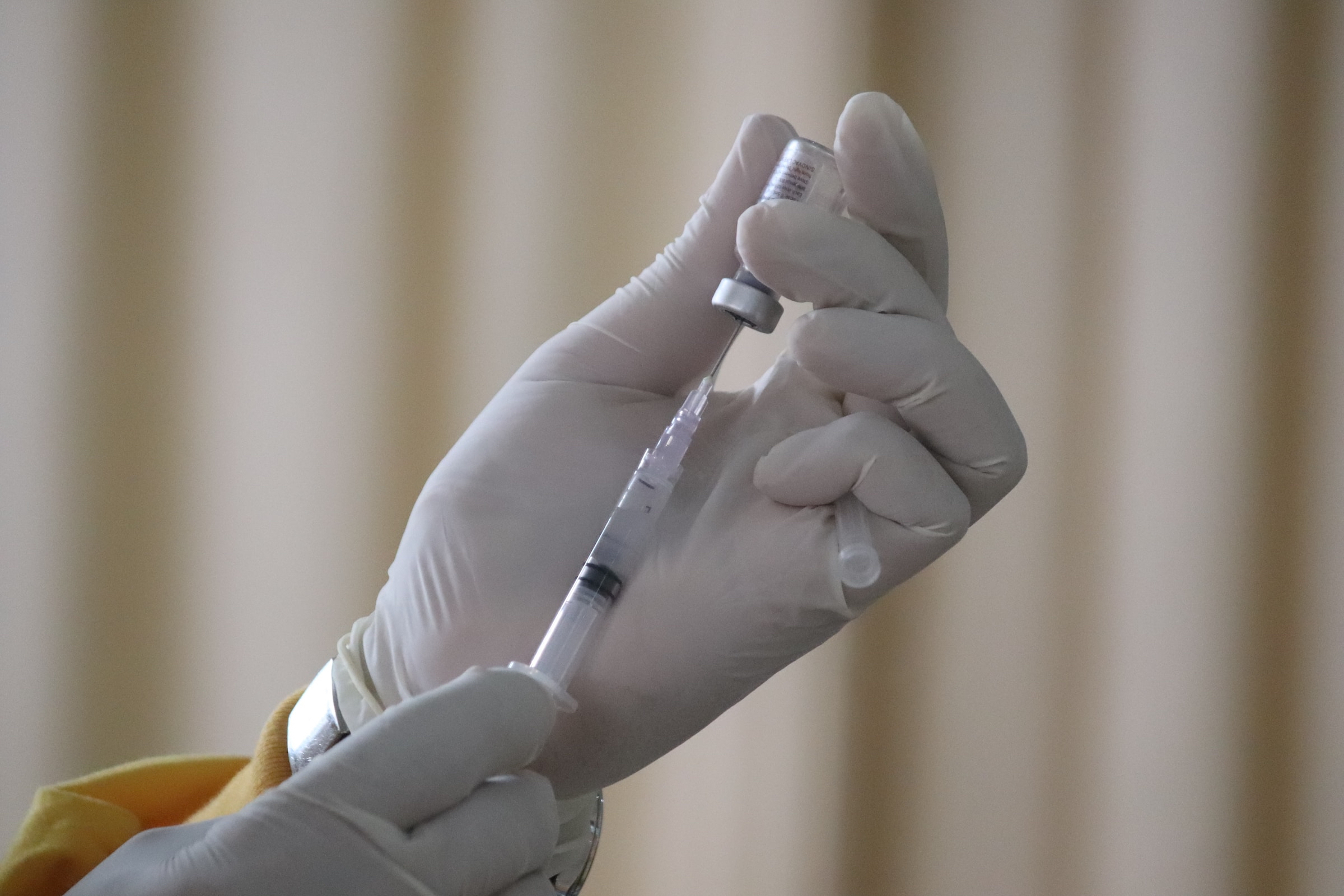A pediatric vaccine to help prevent respiratory syncytial virus (RSV), which was introduced for the first time this year, is in short supply.
Nirsevimab, trade name Beyfortus, is unlikely to be fully available for the rest of the current 2023-2024 season, according to the manufacturer and the U.S. Centers for Disease Control and Prevention. The virus is most common from October through March.
Locally, multiple health care providers, including Stanford Health Care, Kaiser Permanente, Sutter/Palo Alto Medical Foundation, Santa Clara Department of Public Health and San Mateo County Health and others have said they are following CDC guidelines for distributing the vaccine, which may leave some children without the protection.
The nationwide shortage is due to an unexpectedly high demand, manufacturer Sanofi said in late October. Nirsevimab is a monoclonal antibody that protects infants and toddlers against severe RSV disease. The existing supply is currently being prioritized for infants at highest risk of severe RSV disease.
Other types of RSV vaccines for people who are pregnant and adults 60 years and older are not in short supply, the CDC noted.
RSV is a common respiratory virus that usually causes mild symptoms, but infants, toddlers, older adults and people with compromised immune systems are at risk for severe infection and may need hospitalization.
But Nirsevimab reduces the risk of severe RSV disease by about 80%, according to the CDC.
RSV-related vaccinations were only approved by the Food and Drug Administration this last fall. The different vaccines are approved for three demographic groups: pregnant people during gestation so that protection is passed to their baby; infants under eight months old, and toddlers and infants eight to 19 months old who are at high risk and adults ages 60 and older.
Dr. Monika Roy, Santa Clara County Public Health Department assistant health officer and communicable disease controller, said the vaccines represent a substantial development in RSV prevention.
"We didn't have the tools at all last year, and then the products were launched right before the winter virus season. So I think definitely in terms of availability and the implementation of a brand-new product, those are some of the realities that are being faced across the nation right now." she said of the shortage.
For the first time ever, this year there are three different groups of people that are recommended to get the RSV vaccine, Roy said. For adults aged 60 or older, there are two vaccines approved by the FDA. The second group is pregnant people during the 30 to 36 weeks of gestation. One of those FDA-approved vaccines is specifically recommended or approved for pregnant people. The third group includes infants less than eight months of age or those children who are immunocompromised, up to 18 months of age.
"But both the vaccine for pregnant women as well as immunization for infants are designed to protect the infant. We are seeing that there is a shortage of supplies from the manufacturer of the immunization for infants. The good news is that there's no such shortage for the vaccine for pregnant women," Roy said.
Roy said that the county and local medical providers are seeing a considerable number of cases of RSV.
"Our wastewater data indicates, definitely, a substantial rise in our community in the county of Santa Clara. And in speaking with our hospital colleagues, they are seeing a fair number of RSV admissions, so they have noted that these appear to be similar to the number that we've seen at this time last year," she said.
Most healthcare providers and systems are trying to prioritize the limited supply to infants who are under six months old and immunocompromised patients, she said.
Kaiser Permanente Northern California said that it is following the CDC's recommended guidelines of reserving the use of Nirsevimab doses for infants at highest risk for severe RSV. "Our pharmacy partners are also working with the vendors on a timeline for additional doses," Kaiser said.
In a statement, Sutter Health/Palo Alto Medical Foundation said in general, it has been able to meet patient demand for preventative treatments against RSV.
"However, Sutter Health, like other health systems across the country, has experienced challenges accessing a consistent supply of the new monoclonal antibody nirsevimab that helps protect newborns against RSV. In response. Sutter and the Palo Alto Medical Foundation continue to follow the Center for Disease Control and Prevention’s drug administration guidelines that prioritize specific pediatric patients who are at greatest risk of RSV," the medical provider said.
Sutter/PAMF is also providing alternative products to eligible pediatric patients (palivizumab) and pregnant patients (Abrysvo, Pfizer), it said.
"We encourage new parents to ask their doctors about how to best protect their newborn against RSV, flu and COVID-19, before they are discharged from the hospital where they deliver,” Sutter/PAMF said.
On Dec. 14, San Mateo County Health issued a CDC Health Alert Network advisory urging the public to receive all current vaccinations due to a rise in RSV, COVID-19 and influenza cases throughout the country. In addition, there's been an increase in cases of multisystem inflammatory syndrome in U.S. children following SARS-CoV-2 infection, the CDC said.
Public uptake of the vaccines for all of the viruses has been low, however, according to the CDC. Roy urged parents to update their vaccinations for themselves and their children.
"Getting that vaccine will protect your infant through the winter virus season, so that's the first thing. The second is that there is a lot that everybody can do to protect themselves, their families and their infants. That includes things like having good cough etiquette, covering your coughs and sneezes, proper hand washing, and the third is wearing a mask when you're in indoor, crowded space. And then the last is staying home if you're sick.Those things are going to be protective and helpful not just for RSV, but also for flu COVID and any other respiratory viruses circulating," Roy said.


Comments